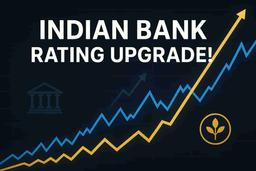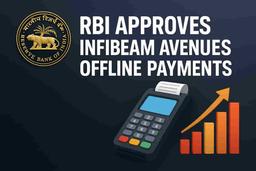Infibeam Avenues has received authorization from the Reserve Bank of India (RBI) to operate as a payment aggregator for offline (physical) payments. This approval, under the Payment and Settlement Systems Act, 2007, allows the company to offer unified digital and offline payment solutions, primarily via Point of Sale (POS) devices, complementing its existing online payment aggregation license. This marks the fourth RBI license for Infibeam Avenues' payments business under its CCAvenue brand, enhancing its presence in India's rapidly growing digital and offline payments ecosystem.
Infibeam Avenues has obtained crucial authorization from the Reserve Bank of India (RBI) to function as a payment aggregator specifically for offline or physical payment transactions. This approval is granted under Section 9(2)(d) of the Payment and Settlement Systems Act, 2007, empowering the company within India's financial regulatory landscape.
The authorization enables Infibeam Avenues to integrate offline payment aggregation services, particularly through Point of Sale (POS) devices, with its already established online payment aggregation capabilities. This allows merchants to offer a comprehensive suite of payment options.
This is the fourth key license secured by Infibeam Avenues for its payment services under the well-known CCAvenue brand. The company already holds licenses for online payment aggregation, prepaid payment instruments, and operates as a Bharat Bill Pay Operating Unit.
The offline payment aggregator framework pertains to POS terminals used by merchants. Infibeam Avenues has been actively expanding its footprint in this segment, notably with its SoundBox Max device, which supports payments via UPI, cards, and QR codes.
RBI data indicates a significant surge in POS terminal installations, growing 24.7% in FY25 to 11 million devices. Market research projects the Indian POS device market, valued at ₹38.82 billion in 2024, to expand at a compound annual growth rate of 13.3% reaching ₹135.32 billion by 2034.
With this latest regulatory nod, Infibeam Avenues anticipates a substantial expansion of its market presence across both the offline and digital payment sectors in India.
Impact
This development is highly positive for Infibeam Avenues, as it broadens its service offerings and market reach in a high-growth sector. It strengthens its competitive position against other payment service providers and could lead to increased revenue and customer acquisition. Investors are likely to view this as a significant step in the company's growth strategy.
Rating: 9/10
Difficult Terms
- Payment Aggregator: A company that acts as an intermediary between merchants and banks, facilitating online and offline payment transactions.
- Offline Payments: Transactions that occur physically, typically at a merchant's location using devices like POS terminals, without requiring constant internet connectivity for the primary transaction processing device itself (though network connectivity is still needed for authorization).
- Point of Sale (POS) devices: Electronic machines used by merchants to process card and digital payments at their physical stores.
- Payment and Settlement Systems Act, 2007: A law in India that regulates payment and settlement systems, including the authorization of payment system operators.
- Prepaid Payment Instruments (PPIs): Instruments like wallets or gift cards that store value and can be used for payments.
- Bharat Bill Pay Operating Unit: An entity authorized to operate under the Bharat Bill Pay system, which facilitates bill payments across India.
- SoundBox Max device: A specific product by Infibeam Avenues that announces payment confirmations and accepts various payment methods.
- UPI (Unified Payments Interface): An instant real-time payment system developed by the National Payments Corporation of India.
- QR code: A type of matrix barcode that can be read by smartphones to quickly access information or complete a transaction.
- Compound Annual Growth Rate (CAGR): The average annual growth rate of an investment over a specified period of time.









